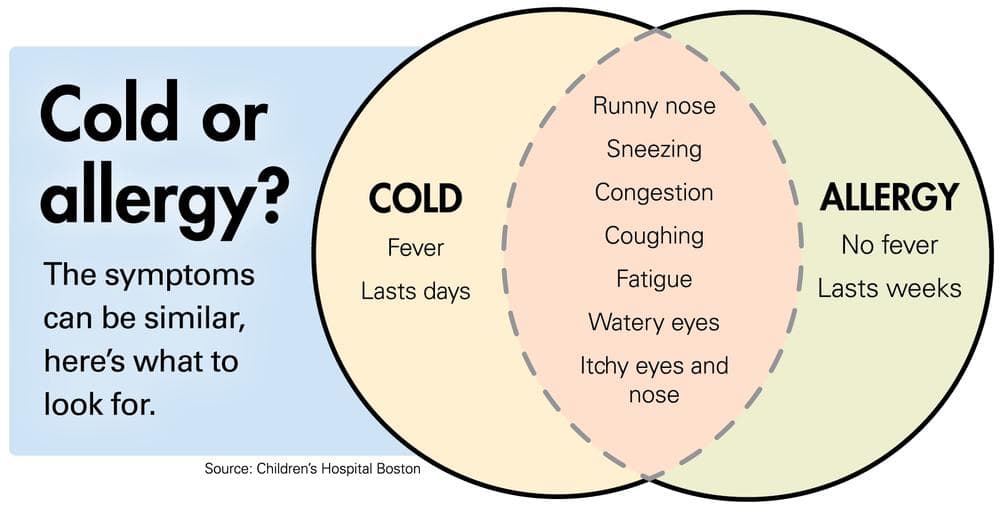Advertisement
Flavors Of Spring Misery: How Allergies Differ From Colds

Your nose feels like an ever-streaming faucet. Your sinuses are overflowing cranial pools. Your brain is stuffed with mental batting. Ah, spring!
But which is it? Allergies or a cold? Children's Hospital Boston sent over the lovely Venn Diagram above, and also connected me with Dr. Andrew MacGinnitie, associate clinical director of its Division of Immunology.
"If it's starting now," he said, "It could be a cold but it's probably allergies, because I'm hearing from people who have spring allergies that the trees are starting to bud and the tree pollens are starting to get out there." The allergies normally don't kick in until April, he noted, but the mild weather appears to be having an effect. And if you feel this way every spring, that's still further indication that it's allergies.
Other points of distinction: A cold will typically last a few days and be gone; seasonal allergies tend to last weeks. And colds often cause fever while allergies don't (Hay fever is a misnomer, he notes, though it does convey how systemically ill people feel.) Tree pollen allergies tend to peak in May; it remains to be seen how this year's weather will affect that.
At what point, I asked, do you say, 'I don't think what I have is just a cold?'
After four or five days, Dr. MacGinnitie said, you may want to try an over-the-counter generic antihistamine, a second-generation, non-sedating drug like ceterizine, fexofenadine or loratadine (which are the generic forms of Zyrtec, Allegra and Claritin.) If those don't help, and the allergies are interfering with work, school, sleep, or activities, that's a reason to seek medical attention, he said.
Two other useful points he offered:
We tend to think of winter as cold season but the viruses do remain common through the spring, almost until school is out and children stop spreading them.
And in terms of non-medical help for allergies: "We recommend that people run their air conditioning even if they don’t really need to because that will filter the pollens and lower the inside pollen level. And if you have pollen allergies, then taking a shower, washing your hair and changing clothes can help because it removes the pollens that have been brought in from outside."
This program aired on March 19, 2012. The audio for this program is not available.
